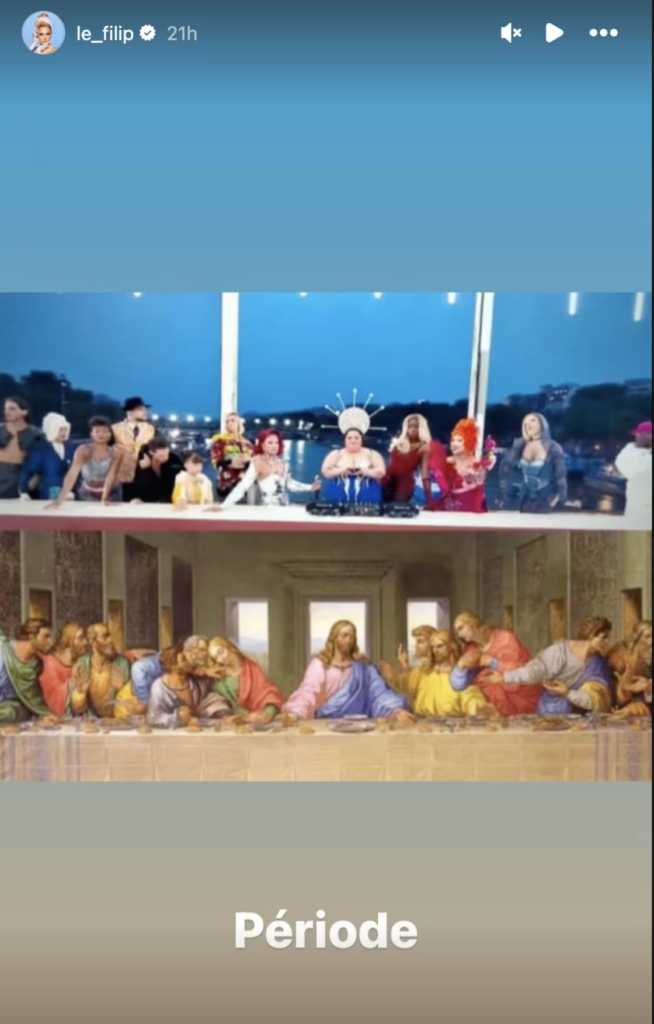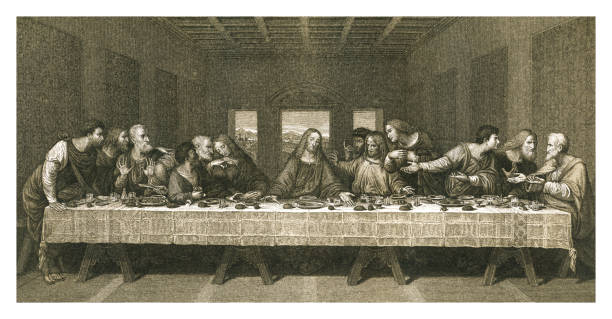The 2024 Paris Olympics opening ceremony, a grand spectacle on July 26, has sparked a range of reactions, particularly due to one provocative scene. The four-hour event featured athletes gracefully traversing the River Seine and performers reenacting globally significant moments. Among these, a controversial tableau emerged, where drag queens and dancers posed around a long table, drawing mixed reactions.
Why some are connecting the Olympics opening ceremony to ‘The Last Supper’
Some viewers likened the scene to Leonardo da Vinci’s iconic painting “The Last Supper” depicting Jesus Christ and his twelve apostles. This perceived resemblance stirred controversy, with some labeling it a “mockery” and “insulting to Christian beliefs.” The imagery, intended by some as an inclusive celebration for the LGBTQ+ community was met with criticism from various quarters.
On July 28, Anne Descamps, a spokesperson for Paris 2024, issued an apology, stating, “We deeply regret if anyone was offended. There was no intention to disrespect any religious group. On the contrary, artistic director Thomas Jolly aimed to celebrate community tolerance.” Descamps emphasized that the scene’s purpose was to foster inclusivity, not offend.
Reactions to Olympic opening ceremony performance:
Artistic director Thomas Jolly, speaking on French television, clarified that da Vinci’s 15th-century masterpiece was not the inspiration for the scene. “There is Dionysus who arrives on this table. He is there because he is the God of celebration in Greek mythology. The idea was to have a pagan celebration connected to the gods of Olympus. You will never find in me a desire to mock and denigrate anyone,” Jolly said.

Reactions to the scene have been polarized. Some praised the artistic vision, viewing it as a bold statement on inclusivity. James Leperlier, President of Inter-LGBT France, expressed that the performance highlighted the ongoing struggles within the LGBTQ+ community, particularly for transgender individuals. Katerine, who performed during the ceremony, described the event as “moving” and a celebration of cultural diversity. “If we are naked, there is no war because there are no weapons,” Katerine remarked, emphasizing a message of peace and acceptance.
RELATED : How U.S. Women’s Rugby Uses The ‘High Women Philosophy’ To Go For Gold At Paris Olympics
Le Filip, winner of “Drag Race France” Season 3, was thrilled with the representation of queer culture on a global stage. “I thought it would be a five-minute drag event with queer representation. I was amazed,” Le Filip told the Associated Press. “It felt like a crowning all over again. I am proud to see my friends and queer people on the world stage.”
Conversely, some public figures and religious leaders condemned the tableau. Actor Candace Cameron Bure, whose husband is a two-time Olympic medalist, expressed her dismay, calling the performance “disgusting” and “blasphemous.” House Speaker Mike Johnson described the scene as “shocking” and “insulting,” while French Catholic leaders criticized it as a “mockery of Christianity.”
The Conference of French Bishops released a statement expressing deep disappointment, stating, “This ceremony has unfortunately included scenes of derision and mockery of Christianity, which we very deeply deplore.” Kansas City Chiefs kicker Harrison Butker also weighed in, quoting a biblical passage, “Be not deceived, God is not mocked. For what things a man shall sow, those also shall he reap. For he that soweth in his flesh, of the flesh also shall reap corruption. But he that soweth in the spirit, of the spirit shall reap life everlasting” (Galatians 6:7-8).
As the debate continues, the scene from the Paris Olympics opening ceremony remains a focal point of discussion, reflecting broader conversations about artistic expression, inclusivity, and respect for religious beliefs.



